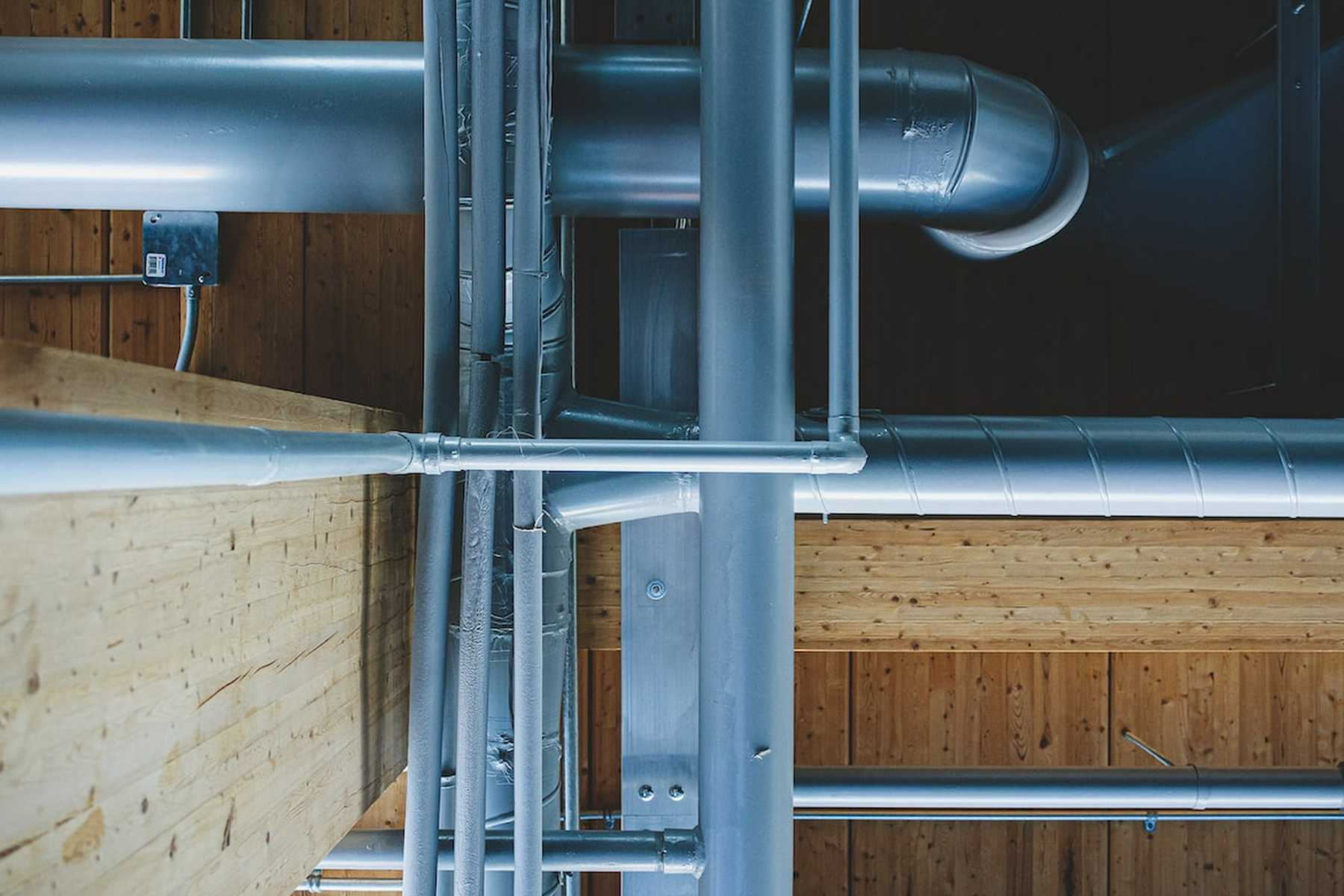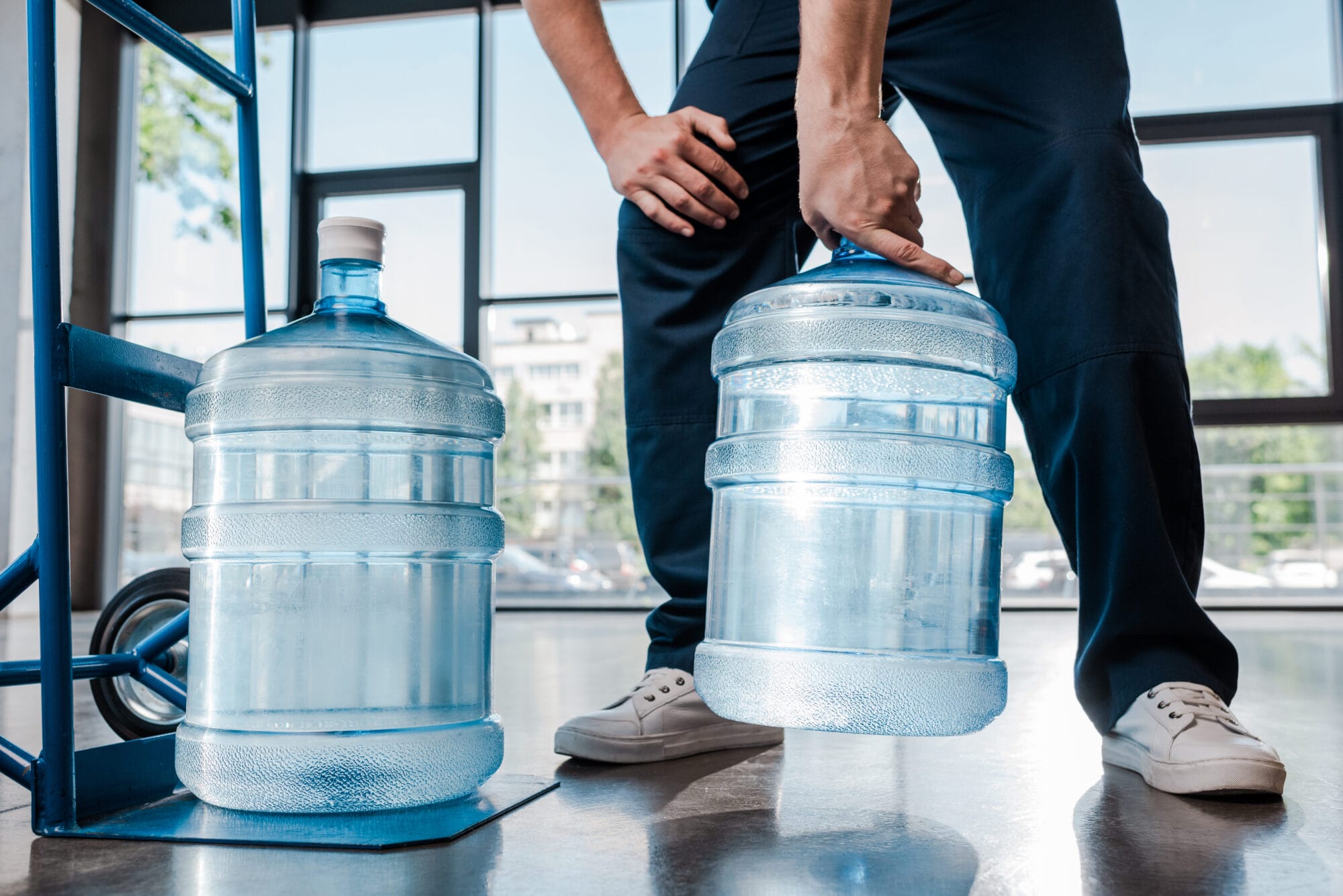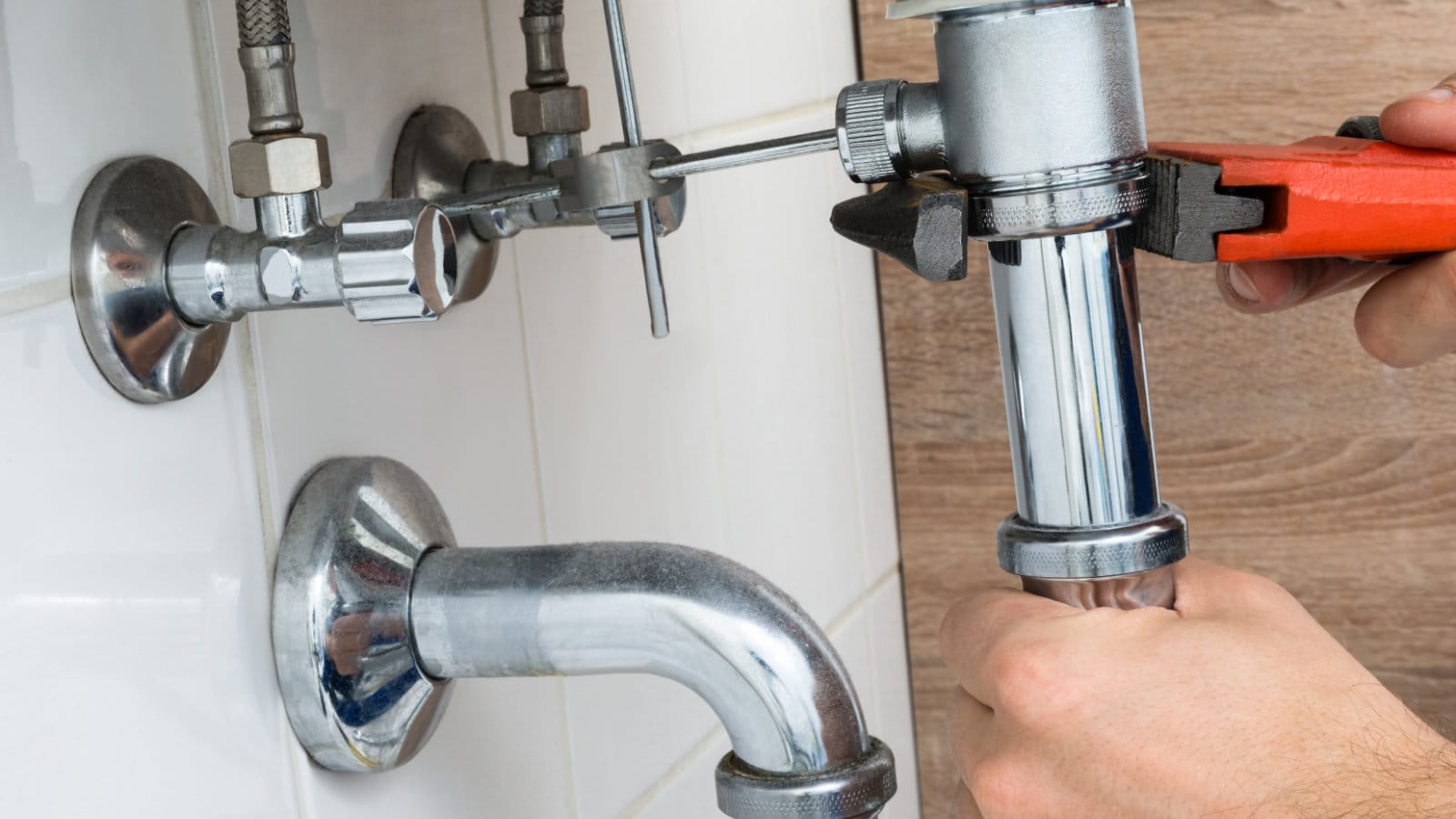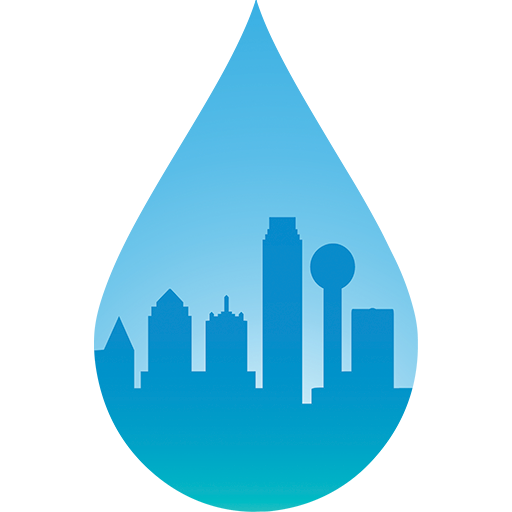Nobody wants to deal with plumbing issues, but they’ll come up on occasion. When a pipe bursts in your home, it can cause extensive damage, lead to mounting inconveniences, and ruin the next couple of days or weeks. If you know or suspect that a pipe in your home is leaking or has burst, read on to learn more about how to respond to the issue effectively.
In this article, we’ll cover common causes of leaks and bursts, signs of a burst pipe, and the steps to take when this issue becomes a reality.
What Causes Pipes to Burst?
Several situations can lead to a water pipe bursting so if this incident occurs at your home, there are a few reasons why it might have happened.
One of the most common causes of burst pipes during the winter months is freezing. When temperatures drop below 32℉, water freezes. This includes the water that sits inside water pipes. When water freezes, it expands and this expansion puts stress on the water pipes. Freezing also causes the bonds that hold pipe segments together to weaken, which causes the pipes to either leak or burst open.
Corrosion is another culprit that can cause water pipes to burst. When the water within the pipes has a significant pH imbalance, the acidic or alkaline elements within the water can begin to corrode the interior of the pipes. Corrosion paired with rust buildup can affect the strength and structure of water pipes, which may eventually lead to a leak or complete pipe burst.
When pipes become clogged inside, the pressure that builds up on one end of the clog can cause the surrounding pipe to burst as well. Depending on where the clog occurs along the pipeline, the issue can become quite serious in a short period of time. For example, if a clog occurs deep within the pipeline, the resulting pressure can strain the pipes and eventually, with nowhere else to go, the water explodes outward, bursting the pipe.
Finally, excessive pipe movement can cause bursting. While a slight shift usually doesn’t cause any damage, a significant shift due to temperature changes, repairs along the pipeline, or an increase in water pressure might move the pipe enough to break it open.
Signs of a Burst Pipe
Sometimes when a water pipe bursts, it’s immediately obvious. Other times, a pipe might burst without anyone noticing it until the effects of the damage become apparent. If you suspect a pipe in your home may have burst but you’re not certain, look for the following signs.
- Water stains (brown discoloration) on one or more walls/ceilings in your home
- Discolored water from your taps, which indicates rust content
- Tap water that has an odor
- Higher water bills than usual
- Decreased water pressure
- Standing water puddles anywhere in your home or yard
If you’ve taken notice of one or more of these signs in your home or yard, you might have a burst pipe. Locating the source of the leak might not be easy to do, but regardless of whether you can pinpoint where the leak is coming from, you’ll want to seek professional assistance immediately.
What To Do When a Pipe Bursts
A burst water pipe can cause a significant amount of damage in very little time, so if you know or strongly suspect that you have had a water pipe in your home burst, take the following steps.
- Shut off the water supply.
Your home should have a manual shut-off valve that controls the flow of water through all of your pipes. Locate it and turn it to the off position. Most of the time, the valve’s handles will be parallel to the pipe when on and perpendicular to the pipe when off. - Remove as much standing water as possible.
Grab towels, buckets, mops, dustpans, and anything else you can use to remove as much standing water from your home as possible. The longer water sits on your floors and seeps into your walls, the more damage it will do. If you have a dry vacuum and it’s safe to plug it in without risking electric shock, use it to suck up some of the water on the floor. - Save your property.
If you have rugs, furniture, or appliances that have gotten wet, remove them from your home and place them in a warm, dry area to dry. If the appliances are plugged in, turn off the power supply before unplugging them in order to avoid electric shock. - Assess the damage done to your home.
Perform a walkthrough of your home and note the damage done by the burst pipe. Take pictures of the damage as soon as you can. After the next couple of steps, you’ll want to go back and create a list of all of the items damaged or ruined by the water that flowed into your home. - Call your insurance company.
If you caught the burst pipe right away, there might not be a lot of damage to worry about. However, if the burst pipe had considerable time to flood your home, you’re going to need to call your homeowner’s insurance company to file a claim. Most policies cover damages caused by floods and burst pipes, so be sure to document everything for your agent as thoroughly as possible. - Contact an experienced plumber.
After you have contacted your insurance agent, you might have been given instructions to call a plumber. Much of the time when you’re operating under an insurance claim, your agent will provide you with the funds you need to pay the plumber. If you’re handling the repairs yourself, reach out to a plumber to schedule a repair.
When a water pipe bursts, the damage it causes can be devastating. If you’re in this situation right now, you’re understandably stressed out and you just want the problem fixed. For residents in and around the Dallas area, Intown Plumbing is here to help. Give us a call right away and we’ll repair your burst pipes so that you can return things to normal as quickly as possible.





